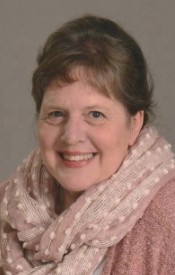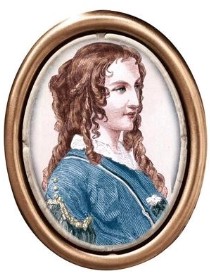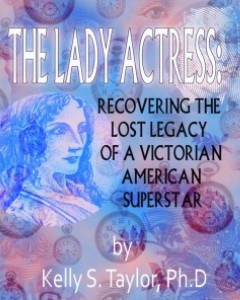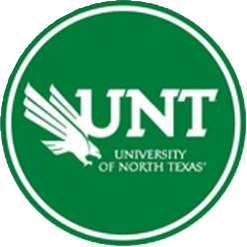|
|

Kelly Shaver Taylor – Class of 1980
Writer, Researcher, Actor, Storyteller, Retired Professor
 East Burke has produced a number of graduates who have gone on to careers in a variety of the performing arts. One of those graduates is Kelly Shaver Taylor, who has not only acted but also has taught theater and written scripts and continues to conduct detailed research. As a trained storyteller, she describes her career journey in appropriate dramatic detail. East Burke has produced a number of graduates who have gone on to careers in a variety of the performing arts. One of those graduates is Kelly Shaver Taylor, who has not only acted but also has taught theater and written scripts and continues to conduct detailed research. As a trained storyteller, she describes her career journey in appropriate dramatic detail.
“I am a retired college professor. I taught in the Department of Communication Studies at the University of North Texas for just over fifteen years. My road to this career path was circuitous, though. I started as an acting major at the University of North Carolina at Greensboro intending to pursue a career in theatre. After getting my B.F.A, I was accepted into UNC-G’s master’s program. During my very first semester, though, I incurred an injury that necessitated my withdrawing from classes. I thought this would only be a temporary interruption to my studies. While I recovered, I decided that I did not wish to return to UNC-G. Instead, I began to apply to theatre programs at other universities around the country. I took a second-shift job at Duracell in Valdese to save money for my return to college. In the meantime, I also performed a one-person show titled ‘Word of Mouth’ in the schools. It was written by my husband, who was a fellow theater major, and consisted of Burke County ghost stories.
“Dr. Cheryl Oxford, who was professor of theatre at Western Piedmont Community College for many years, hired me to teach a few ‘Introduction to Theatre’ classes.
“I agreed – though I had never pictured myself as a teacher. My mother had taught fourth grade at Hildebran Elementary School. My experiences growing up as a teachers’ lounge rat had made me swear up and down that I would never, never, never wind up in that thankless profession… However, I quickly found that teaching on the college level was an entirely different kettle of fish. I loved my students and the material. Everyone seemed pleased with me.
“Finally, Dr. Oxford met with me and said, ‘Look, we just can’t give you any more classes because you only have a B.F.A. You need to at least have a master’s degree for us to hire you as an adjunct.’
“I replied, ‘Well, I’ve got several applications out right now and a few auditions lined up…’ She asked, ‘Have you considered UNC-Chapel Hill?’
“I sighed heavily. ‘Yes. But their acting program only takes 15 people a year, and unfortunately when I auditioned last spring, I came in number 17…’
“She persisted. ‘Have you thought of applying to their program in Communication Studies? It’s where I got my masters. I’ll write you a letter of recommendation.’
 “At this point, I had to pause as a great big light bulb flickered on inside my tiny brain. No, I had not considered the Communication Studies program. However, once I did, all my years of participating in public speaking contests and forensic tournaments, judging, assisting in coaching, organizing a speech event for Burke County students, the storytelling show I had performed, and dozens of other activities that had little or no place on an acting resume suddenly glittered like bright shining stars on the vita I could prepare to recommend my fitness as Comm studies grad. Clouds of doom that had been darkening visons of my future melted, and sweet music of hope began to sing in my ears. “At this point, I had to pause as a great big light bulb flickered on inside my tiny brain. No, I had not considered the Communication Studies program. However, once I did, all my years of participating in public speaking contests and forensic tournaments, judging, assisting in coaching, organizing a speech event for Burke County students, the storytelling show I had performed, and dozens of other activities that had little or no place on an acting resume suddenly glittered like bright shining stars on the vita I could prepare to recommend my fitness as Comm studies grad. Clouds of doom that had been darkening visons of my future melted, and sweet music of hope began to sing in my ears.
“I smiled. ‘Let’s do this thing!’
“Cheryl Oxford wrote a letter so lovely that I could scarcely recognize myself in it. Instead of getting the ‘close but no cigar’ treatment, this time a different department at UNC-Chapel Hill welcomed me with open arms. My initial plan was to complete the expedited, one-year certification program that would give me just enough of a degree to allow me to return to Western Piedmont and resume teaching as an adjunct. However, that was before I met Dr. Beverly Whitaker Long.
“Dr. Long was our department chair. Her personality had the force of a Mack truck. You simply did not stand in her way. She liked me. I’m still not 100% sure why. I’m just glad that she did. It was hard to survive being disliked by her.
“My husband used to say, ‘Bev is pruning that person for success’ instead of ‘priming for success.’ I never corrected him, though. Rather than gently nurturing, it did seem like she would just hack off bits of people she deemed useless as ruthlessly as a gardener would trim a rosebush.
“One day Dr. Long smiled at me and said, ‘My friend Mary Frances will love you. You’re gonna enjoy LSU.’
“And that was it. Next thing I knew, I was two years into the doctoral program at Louisiana State University with Dr. Mary Frances Hopkins as my major professor. Going to LSU was a good idea. It suited me well, but it was more Beverly Whitaker Long’s idea than mine. Dr. Long was the kind of person who when she said, ‘Jump!’ you didn’t bother asking, ‘How high?’ because by that time you were already in the air hoping for a soft place to land…”
Kelly’s credentials now included a cum laude Bachelor of Fine Arts in Acting from UNC-G in 1984, a Master of Arts in Speech Communication from UNC-Chapel Hill in in 1990, and a Ph.D. in Speech Communication from Louisiana State in 1994. A diploma from WPCC in Computer Operations, earned in 1986, is useful in all walks of life and has been put to good use.
“After graduating and holding a couple of one-year teaching appointments, I became a professor at the University of North Texas in Denton, Texas. I taught classes in subjects such as Storytelling, Readers Theater, Performance Art, History of Performance Studies – or as I used to say, ‘all the fun stuff.’ In special summer semester sessions, I took groups of students to locations such as Germany, Mexico, and Washington, D.C., for narrative theory classes. I directed a number of Reader’s Theatre style productions. These productions include:
“Somewhat ironically, my academic career which began because of an injury I incurred in my first grad school experience came to an abrupt end as a result of a second unexpected accident. In 2009, I was in a collision while riding the short distance to work on my bike. As a result of the injuries I received, I had to take early retirement. I miss my students but enjoy having time to be with my family back in Burke County.
 “I also now have time to work on a long-deferred research project. My dissertation was on Anna Cora Mowatt. She was a 19th century actress/ novelist/ playwright/ poet/ journalist/ preservationist. Mowatt wrote a play called ‘Fashion,’ which was the first Broadway comedy hit written by an American woman. Mowatt, along with Edwin Booth and his brothers, Charlotte Cushman, and Edwin Forrest was one of the first generation of U.S. stage celebrities. She was a founding member of the Mt. Vernon Ladies Association. This group saw to it that George Washington’s home was preserved as a national monument. I have published a number of articles and even a short book, ‘The Lady Actress,’ about her. www.amazon.com/Lady-Actress-Kelly-Taylor-Ph-D/dp/0615262503 “I also now have time to work on a long-deferred research project. My dissertation was on Anna Cora Mowatt. She was a 19th century actress/ novelist/ playwright/ poet/ journalist/ preservationist. Mowatt wrote a play called ‘Fashion,’ which was the first Broadway comedy hit written by an American woman. Mowatt, along with Edwin Booth and his brothers, Charlotte Cushman, and Edwin Forrest was one of the first generation of U.S. stage celebrities. She was a founding member of the Mt. Vernon Ladies Association. This group saw to it that George Washington’s home was preserved as a national monument. I have published a number of articles and even a short book, ‘The Lady Actress,’ about her. www.amazon.com/Lady-Actress-Kelly-Taylor-Ph-D/dp/0615262503
“However, there has not been a comprehensive Mowatt biography published since the 1950s, and I’ve begun work on such a text. I have a blog https://www.tla.wapshottpress.org and a website
www.alphacentauri2.info/AnnaCoraMowatt/ devoted to sharing the fruits of my research. Whether or not I am able to complete and find a publisher for a work on Mowatt, I want the information I’m uncovering about this fascinating figure from U.S. theatrical history to be available to the next generation of young scholars.
“Looking back, it’s almost hilarious how everything I experienced seemed to prepare me for a career in teaching Communication Studies – even though I thought I was preparing for a career in Acting. During those couple of years after I dropped out of the program at UNC-G, I had no luck at getting hired as an actor. I had some really heart-breaking near misses in audition processes to get into programs. At the same time, though, Burke County folks would just call me up out of the blue and ask me to do things related to public speaking or storytelling. Since I love that stuff, I’d always say, ‘Sure!’ Even the job at the battery factory – even though it was boring, dirty, and at times dangerous – allowed me to store up enough money to pay for grad school without going deeply into debt. In the end, everything worked out like it was according to a carefully thought-out plan. My path was just a different road than the one I thought I was walking down.
“As an educator, I would say that my teaching style was greatly influenced by experiences in my Humanities class with Ben Gunter and Lillian Pendley. Mr. Gunter taught the history portion of the class. He encouraged critical thinking and had a delightfully razor-sharp, acerbic wit. More than any other of my teachers, I think I modeled my lecture delivery style on his. One of my favorite memories of him was the day he screened ‘Monty Python and the Holy Grail’ in class to go along with his lecture on Medieval Europe. He tried to censor the occasional problematic words out by quickly turning the volume on the TV down. However, this was in the days before ‘mute’ buttons were common. There was only a little volume control knob that one had to twist very quickly. Mr. Gunter was laughing as hard at the antics of the Black Knight and the Knights Who Say ‘Nee’ and all the other characters as we were. There were a couple times he accidentally turned the volume up to ‘10’ instead of down to ‘0.’
“Mrs. Pendley was in charge of Writing and Literature. She was always wonderfully calm and wise. At the time, I was impatient and restless. I thought she was over-careful and too particular. After grad school and years of teaching, I now say, ‘You were right, Mrs. Pendley. You were right about everything.’ When grading my students’ work, I always strove to give out the kind of insightful, fair-handed critiques she offered.
“Martha Wetmore was the coach of our forensics team. Along with the musicals we did each year, the forensics team was my ‘home’ in high school. We travelled together to speech tournaments a couple dozen weekends each school year. This small, tight-knit group of very intelligent, very talented students loved each other like brothers and sisters, competed against each other like vipers sometimes, and at times fought like cats and dogs. This was my family. Some of my sweetest memories from my high school years are connected to this group, but I also shed bitter tears with these folks. How Mrs. Wetmore put up with us, I have no idea. She is, to this day, my gold standard when it comes to mentoring. She always treated each of us with trust, understanding, and respect, while still managing to gently curb our worst excesses. She welcomed us into her home. She answered all our idiotic questions. She gave us remarkably practical advice on how to get ourselves out of the dumb messes we got ourselves into. Sometimes we were just too young and stupid to take advantage of the wisdom she shared with us. She provided remarkably good coaching – not just on speech and debate – but on how to get through those difficult teen-aged years.
“One February, the team was coming home from a tournament in Bowling Green, Kentucky. It started snowing before we got out of the state. This was in the days before cell phones and the internet, so we had no warning of how bad road conditions were ahead of us. We were in a sixteen passenger van with a poor heating system. No one was dressed for severe winter weather. As the snow began to pile up on the sides of the road and darkness descended, traffic on the interstate crawled to a halt. Mrs. Wetmore and Joey Connelly, who was driving the van, got out to do reconnaissance. Those of us left in the van were cold, tired, and panicky. We were hours and a couple of states away from home with no way of notifying our parents.
“Mrs. Wetmore was laughing when she came back. ‘We can get to the next exit and get to a motel and stay the night. The trucker who told me must have thought he was being very polite, but he was cussing every other word!’
“We were able to find a mildew-y motel with minimal problems and immediately invested a small fortune in quarters towards informing our anxious parents of our whereabouts when we located a pay-phone. Our adventures weren’t over though. The next part of the story I can’t recall exactly. There was some kind of spat between some team members. Wetmore exercised her usual diplomacy to diffuse this blowup. At any rate, we separated into groups to while away the rest of the evening until it was time to turn in for the night.
“Chris Honsaker and I were watching ‘Casablanca.’ I think a couple of other people wandered in and out of the room but were not as dedicated to watching an old black and white movie as Chris and I were. When Wetmore stuck her head into the room to check on us about a half an hour later to see if we were all right, I replied that I was, but that I didn’t know about Chris. He was alternating between chills and sweating profusely and was beginning to babble – although he still knew more trivia about the film than you could find on the IMDB website today. Poor Chris had caught the flu. He was running a temperature of about 103.
“Poor Wetmore had to venture once more out into the snow to try to find medicine for him. By morning, at least three more of the team were coming down with similar symptoms. We still piled into the van and headed for North Carolina the next day. We were all out of money. Kids didn’t carry credit cards in 1979. We slipped and slid over the mountains, but Mrs. Wetmore managed to get us all back home in one piece. Martha Wetmore is a candidate for sainthood in my opinion!
“Finally, a primary activity that nourished and sustained me during my time at East Burke were the musicals. With a miniscule budget, primitive performance venue, and little support, Phyllis Garrison managed to stage a simply glorious production each and every year. When I was in the 9th grade, I travelled to East Burke with my GATE class to see a performance of ‘The Music Man’ starring Keith Watts and Kim Cozort. I was mesmerized by the talent I saw on stage and giddy with delight at the sparkling energy of the direction. I vowed on the spot that I would be part of the next year’s cast.
“One technicality did pose something of a roadblock on my path to musical theatre stardom, though – I’m not much of a singer or dancer. Fortunately for me, however, the play chosen for the next year had a minor role that required no singing or dancing, but contained some of the show’s funniest lines. The script was ‘My Fair Lady.’ The character was Professor Higgins’ mother, Mrs. Higgins. Several seniors had their eye on this role. However, Garrison liked my reading of the lines the best, and that – as the line from ‘Casablanca’ goes – ‘was the beginning of a beautiful relationship.’ In the years that followed, she found other roles for me that required little singing and minimal dancing.
“I had the best seat in the house when I opened the show playing Aunt Eller in ‘Oklahoma!’ I sat on the front edge of our stage churning and got to watch each night when Warren Brendle – our Curly -- would enter the back of the auditorium and hit that first gorgeous note of ‘Oh, What a Beautiful Morning!’ always perfectly on key. The audience would give a little gasp and turn towards him as he came strolling down the aisle as if a breeze were blowing through the building. It was too adorable for words…
“I provided something more than a sympathetic shoulder to my co-star when I played Golde in ‘Fiddler on the Roof.’ Greg Young and I had been friends and acting partners for several years by the time we were seniors, so we usually had a genuinely good rapport onstage and little trouble with coming up with realistic character blocking. In the song ‘Do I Love You?’ though, Greg would sometimes nuzzle his head against my shoulder at the end of the song – much to the audience’s delight. This gesture looked very affectionate, but in reality, he was trying to get the sweat out of his eyes. I had a costume change in the next scene, and he had asked in advance if he could do it, so it was okay. But the gesture was more inspired by obscured vision and the heavy cap he wore than by love.
“My biggest memory of that show was our last performance. The play ends sadly with Tevye’s family saying goodbye to their village and all their friends -- perhaps forever. As sometimes happens, while on stage I began to reflect on how my emotions were overlapping with those of my character in that moment. This was my last show with this dear group of people – some of whom I had known since second grade. From here, our paths would diverge. I would never perform with them again. Who knows where any of us would be in five or ten years?
“My next scene was with my best friend, Janice Stamey, who was playing one of Golde’s old friends. She must have been thinking the same thing I was. Her eyes glistened with real tears. The hug we gave each other when we parted was genuine, and the sniffling was unscripted. The scene that followed was with another of Golde’s friends played by other of my dear friends, Sherrie Murray. We didn’t forget a line or get too choked up to speak, but tears streamed down our faces, and when the time to go came, we held on to each other’s hand until the last moment as if our hearts were breaking… because they were. I think I wept quietly for the last twenty minutes of the show. I could hear the audience sobbing along with me. It was a very sad, but very beautiful goodbye to a special part of my life.
“Back home in Burke County, I continue my research on Anna Cora Mowatt and do web work for Pleasant View Baptist Church, where my brother Rex is the pastor. I have also become involved with the Burke Theater Guild (BTG), which was started in 2013 by Phyllis Garrison to promote theatre arts in the county. I helped her with the BTG production of ‘Camelot’ at the CoMMA in 2017. Two of the major roles were performed by Keith Watts and Chris Honsaker. Don’t tell me that East Burke isn’t a family!!
“I’ve composed and performed Readers Theatre style adaptations of poems and prose for a BTG ensemble who toured the Burke County Public Schools in the spring of 2018. Just like everyone else, we had to take a break during the pandemic, but I’m looking forward to resuming activities with them in the near future.”
Published December 2022

Home Page
|
|
|
|